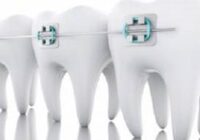
It’s hard to find a loving, kind example of a dentist in movies and television. Most are portrayed as terrifying or cold and sterile. Does this depiction of the profession mirror our culture’s feelings about going to the dentist, or does it create more fear and anxiety than already exists?
It’s hard to tell but according to research from the CDC only 62 percent of adults aged 18-64 visited the dentist in 2014. In fact, they found that of the adults aged 20-44, 27.4 percent had untreated cavities. 1
If people aren’t avoiding the dentist because of what they see on television, then why are close to 40 percent of Americans not going in at least once a year for professional care? Cost is one reason. Dental insurance can be complicated and costly. One study found that if your mouth has a healthy year, your dental insurance probably caused you to lose around $200. 2 Obviously, that’s not always the case and dental insurance can be a huge relief if major work is needed such as a root canal.
The complexity of dental plans means you should be very careful when choosing one that works for your situation. Many have low annual maximums and only cover small percentages of each procedure. It’s important to do the math and talk to your provider to decide how and if dental insurance can benefit you and your family.
One of the biggest reasons people avoid the dentist is due to anxiety or phobia. A study published in the Dental Research Journal found that dental anxiety was more prevalent in women and was sometimes caused by a previous traumatic experience. Out of the 473 patients in the study, 58.8 percent experienced dental anxiety or fear. 3 Dentists around the nation have heard the concerns patients have regarding anxiety and are taking steps to help them, says Dr. Martin Abelar, DDS, a leading San Diego restorative and cosmetic dentist.
“Anxiety is a very real thing that can have a damaging impact on the health of a patient,” said Abelar. “If they avoid coming in because of anxiety until they are in extreme pain, their quality of life has suffered and now the problem is so severe they need major work.”
A new study from King’s College in London recently confirmed that people who suffer from dental phobia are more likely than those who don’t to have one or more teeth missing or affected by decay. Those in the study who experience dental phobia also admitted to having a poor quality of life.4
“At our office, and in many other across the nation, we now offer something called sedation dentistry,” said Abelar. “Depending on the severity of the anxiety or phobia, medication can be administered before or during treatment to help patients find peace and comfort to get the care they both need and deserve.”
According to Abelar, treatments range from an oral medication to reduce anxiety all the way to complete IV sedation in order to correct years of decay from avoiding treatment all in one appointment.






